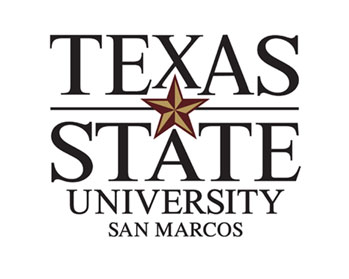
Mobile Cyber-Physical Systems

The main research theme of this opportunity is in the general area of Mobile Cyber-Physical Systems. A Mobile CPS refers to a system composed of physical and computation components that are mobile and can communicate over a network. A swarm of robots is an example of a Mobile CPS. Users roaming with their cell phones is another example of a mobile CPS. Here are few example applications:
- Target tracking, search and rescue and border control
- Intelligent transportation systems and vehicular networks
- Sensing with mobile nodes
Mobile devices in a CPS form a network that does not guarantee the existence of paths to deliver packets as they may move in different directions and with different speeds to execute different tasks. When two devices move within each other's transmission range during a period of time, we say they made a contact or met with each other. When they move out of their transmission ranges, the connection is lost. If there is no contact with the next host, the packet to be delivered needs to be stored in the local buffer of the current host until the connection is reestablished. Thus, the network has the store-and-forward or delay tolerant characteristic. The mobility of the devices brings challenges to the delivery of control and measurement signals, which are crucial to the effectiveness of the system. If these signals cannot be delivered before certain deadlines, the tasks carried in the commands and the measurement data will lose their timeliness and may not match the current needs and state of the system.
A rudimentary method to guarantee the timely delivery in a mobile CPS is flooding. However, it results in a large number of copies of packets in the CPS and thus consumes a high amount of energy and bandwidth which will increase the cost of routing. Therefore, our goal in this project is to develop a delay-tolerant routing protocol to minimize the cost of routing under the constraint that certain percentage (say x) of the control and measurement signals reach their intended destinations within their deadlines.
Project Plan: Our plan for this project includes the following tasks: (1) In the first two weeks, the students will learn how to develop a comprehensive information model to capture historical statistics of the network which will be used in the routing process. (2) In the next three weeks, the students will work on designing a delay-tolerant routing protocol for mobile CPSs so that x of the control commands and measurement data can reach the destination within their deadlines with a minimal cost. The protocol will use the information model developed. (3) In the remaining weeks, the students will conduct simulations to test the performance of our routing protocol. They will experiment with different values of x, the deadlines and the cost incurred to understand the tradeoffs among them.
As mobile devices are gaining more computational capabilities, they are
forming a collaborative mobile CPS platform with which they can jointly
share and utilize their computational, storage and networking resources to accomplish the assigned tasks. However, such collaboration is threatened by attackers, who can easily locate mobile devices in field, capture them and obtain the firmware.
In this REU project, we will study new trustworthy computing technologies to ensure correct operations and collaborations among mobile devices. We will study and experiment with secure code partition and offloading techniques that distribute segments of firmware among mobile devices. We will explore new mechanisms, such as code diversity, to protect the offloaded code and its computation.
In a Mobile CPS, nodes rely on wireless communications to send/receive control and measurement signals to accomplish their assigned tasks. Due to the open access nature of wireless communications, these signals may be subjected to noise and intentional jamming by adversaries. This
causes the mobile nodes to receive a subset of the intended signals. The effect of jamming has been shown to cause
severe effects that may cripple the whole system. Luckily, by their very nature, these
attacks can be easily detected, allowing some countermeasures to be taken.
This project seeks to uncover stealthy attack patterns that can
inflict significant damage without being detected and to develop
secure mechanisms to mitigate their impact. The project will be
studied through applications in the area of robotics and vehicular
networks.
More information can be found here.
This REU research thread will study mobile devices and embedded software platforms. CPS consists of diversified mobile devices and embedded devices. Available software platforms and APIs play a critical role in viable CPS applications. The research will first study popular software platforms and compare their strengths and weakness. Then the project will focus on the security/trustworthiness mechanism available in the studied software platforms. The goal is to propose possible improvement/enhancement to some software platforms for security and trustworthiness.
In mobile CPSs, it is critical to manage the energy consumption, since mobile devices are usually battery-powered. Approaches to reducing power for computation and communication usually result in latency and loss of tasks. For example, low-power devices may slow computation or forward commands to other devices for execution. Latency and loss grow in a CPS as power depletes in mobile devices.
In this project, we will investigate power management. We will explore formulations of this important power management problem with different assumptions and objectives, develop solutions to the power management problems, and compare their performances. We will study the power management on processing and delivering control commands as optimization problems that minimize power consumption with the constraints on latency and loss set by the CPS applications. We will develop approximate and heuristic solutions to the power management problems. We will examine the optimal strategies of executing tasks carried in commands and scheduling the transmission of commands. We will implement and evaluate the energy-efficient solutions in simulation and in our MCL lab using sensors mounted on top of robots.
Notifications.........15 Mar 2014
Program starts........2 Jun 2014
Program ends.........8 Aug 2014
Travel (up to $600)
Housing and meals included